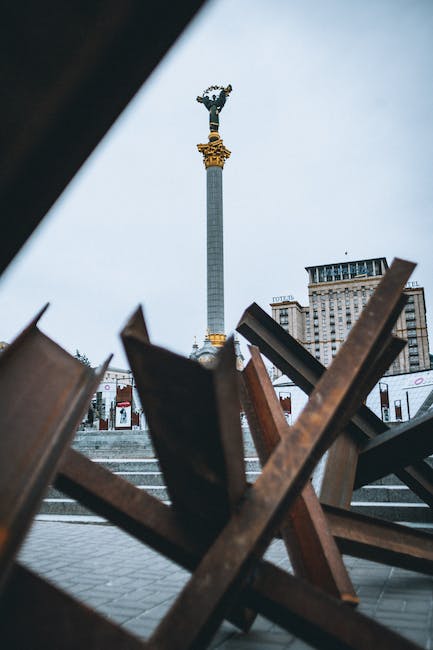In a world where conflict seems to be a constant presence, it’s easy to feel overwhelmed and helpless. From personal disagreements to global crises, it can be difficult to know how to approach conflict resolution in a way that is effective and sustainable. However, there is a powerful tool that has been used for centuries to promote peace and understanding: meditation. By taking the time to quiet our minds and focus on our inner selves, we can cultivate the clarity and compassion necessary to navigate even the most challenging conflicts. In this article, we’ll explore the benefits of meditating for conflict resolution and offer some practical tips for incorporating this practice into your own life. Whether you’re dealing with a difficult relationship, a workplace dispute, or a larger societal issue, meditation can help you find a peaceful solution.
1. “Finding Inner Peace: The Power of Meditation in Conflict Resolution”
Meditation is a powerful tool that can help you find inner peace and resolve conflicts in your life. By taking the time to sit quietly and focus on your breath, you can calm your mind and gain clarity about the situation at hand. This can help you approach conflicts with a more level-headed and compassionate attitude, which can lead to more positive outcomes.
When you meditate, you are training your mind to be more present and aware. This can help you become more attuned to your own thoughts and emotions, as well as those of others. By developing this awareness, you can better understand the root causes of conflicts and work towards finding solutions that benefit everyone involved. Meditation can also help you cultivate a sense of empathy and compassion, which can make it easier to communicate effectively and resolve conflicts in a peaceful and respectful manner.
- Benefits of meditation in conflict resolution:
- Increased self-awareness
- Improved emotional regulation
- Greater empathy and compassion
- Enhanced communication skills
- Reduced stress and anxiety
Overall, meditation can be a powerful tool for finding inner peace and resolving conflicts in your life. By developing a regular meditation practice, you can cultivate a sense of calm and clarity that can help you approach conflicts with a more positive and productive attitude. Whether you are dealing with conflicts in your personal relationships, at work, or in your community, meditation can help you find the inner resources you need to navigate these challenges with grace and compassion.
2. “Meditation as a Tool for Peaceful Solutions: A Guide to Conflict Resolution”
Conflict is an inevitable part of life, and it can arise in any situation, be it personal or professional. However, it is how we deal with conflict that determines the outcome. Meditation is a powerful tool that can help us resolve conflicts in a peaceful and constructive manner. Here are some ways in which meditation can be used as a tool for conflict resolution:
- Developing empathy: Meditation helps us develop empathy, which is the ability to understand and share the feelings of others. When we are in conflict with someone, it is important to understand their perspective and feelings. Meditation can help us develop this understanding, which can lead to a more peaceful resolution.
- Reducing stress: Conflict can be stressful, and stress can make it difficult to think clearly and rationally. Meditation can help reduce stress and promote relaxation, which can help us approach the conflict with a clear and calm mind.
- Improving communication: Effective communication is key to resolving conflicts. Meditation can help us improve our communication skills by making us more mindful of our words and actions. It can also help us listen more attentively to the other person’s perspective.
By incorporating meditation into our conflict resolution strategies, we can create a more peaceful and harmonious world.
3. “Transforming Conflict with Meditation: How to Cultivate Calm and Compassion
When we encounter conflict, our natural response is often to react with anger, frustration, or defensiveness. However, with the practice of meditation, we can learn to cultivate a sense of calm and compassion that allows us to transform conflict into an opportunity for growth and understanding.
One way to cultivate calm and compassion is through the practice of mindfulness meditation. By focusing our attention on the present moment and observing our thoughts and emotions without judgment, we can develop a greater sense of self-awareness and emotional regulation. This can help us to remain calm and centered in the face of conflict, rather than reacting impulsively.
- Another technique for cultivating compassion is loving-kindness meditation. This involves directing positive thoughts and feelings towards ourselves and others, even those with whom we may be in conflict. By acknowledging our shared humanity and wishing for the well-being of all beings, we can begin to see beyond our differences and find common ground.
- Finally, it’s important to remember that conflict can be an opportunity for growth and learning. By approaching conflict with an open mind and a willingness to listen and understand, we can gain new perspectives and deepen our relationships with others.
Overall, the practice of meditation can be a powerful tool for transforming conflict into an opportunity for growth and understanding. By cultivating a sense of calm and compassion, we can approach conflict with greater clarity and empathy, and ultimately find resolution and healing.
In conclusion, meditation is a powerful tool that can help us find peaceful solutions to conflicts. By practicing mindfulness and cultivating a sense of inner calm, we can learn to approach difficult situations with clarity and compassion. Whether it’s a personal disagreement or a global crisis, meditation can help us navigate the complexities of conflict resolution with grace and wisdom. So the next time you find yourself in a tense situation, take a deep breath, close your eyes, and meditate on the possibility of peace. Who knows what kind of transformative solutions might arise?
